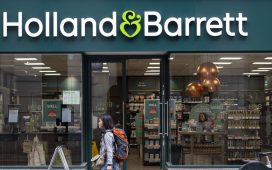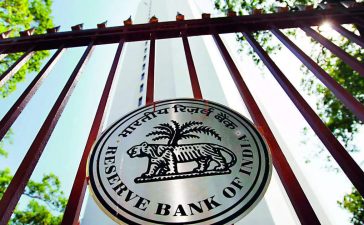Unlock the Editor’s Digest for free
Roula Khalaf, Editor of the FT, selects her favourite stories in this weekly newsletter.
Low-cost digital wealth manager Nutmeg plans to launch thematic investing portfolios, hoping to capitalise on a growing trend among younger savers for the investment style.
Thematic investing in areas such as environment, social and governance (ESG) and technological transformation has grown in prominence in the past decade, led by investors seeking both higher returns and a positive impact for their money.
By December 2021, £850bn was invested worldwide in equity-based thematic funds, according to Morningstar data, though that has since fallen to £550bn in September 2023 through a mixture of market movements and outflows.
“We all have ideas of what the future of the world looks like and we want to offer investors a way to achieve their financial goals and also lean into themes of interest,” said Nutmeg’s chief investment officer James McManus.
“These portfolios are designed to allow retail investors to access long-term structural growth trends without having to trade off in terms of risk,” he said, acknowledging that the investments will offer exposure to mid- and large-cap public companies that stand to benefit from these trends, rather than the smaller, private companies that often drive the innovation.
Nutmeg, bought by JPMorgan in 2021 in a deal valuing it at about £700mn, has over £5bn in assets under management on behalf of 230,000 investors. It has struggled to reach profitability as it scales up, reporting an operating loss of £30mn for 2022, up from £20mn in 2021.
The new portfolio types, its first product launch since it was acquired, offer investors the choice of up to 20 per cent exposure as part of a more diversified portfolio to “future-focused” themes. Those are: “technological innovation”, “resource transformation” and “evolving consumer”.
Nutmeg portfolios are almost entirely made up of low-cost exchange traded funds. The manager, which McManus calls competitive with private banks “for all wealth levels”, takes a 0.75 per cent management fee on assets up to £100,000.
The company is part of a new wave of so-called “robo advisers” that offer digital wealth management products to investors with smaller pots, including companies such as Moneyfarm and Wealthify.
Moneyfarm also offers thematic investing products and traditional asset managers are getting in on the trend. Janus Henderson on its website offers “thematic equity investing solutions” to capture interest in healthcare, technology and sustainability.
Financial industry insiders are split over the merits of thematic investing. Some believe it offers a source of diversified returns; others that themes have reached their peak by the time retail investors can access them.
“The dynamic attractiveness of themes has proven to be resilient through challenging times for markets and different from traditional investment approaches,” said a quantitative analyst at Citibank in a note from March 2023.
“During 2022, the Most Attractive Themes quintile outperformed the Least Attractive Themes by 9.4 per cent; it also outperformed MSCI World by 4.6 per cent”.
Julien Sevaux, chief executive of wealth manager Eighteen48 Partners, said he is “not too keen on thematic investing”. “It’s invariable that an equity manager with themes like ageing population [or] renewables will try to fit the portfolio to themes instead of doing really good bottom up analysis.”
“Thematic investing is clearly prone to hype cycles,” analysts from Morgan Stanley wrote in a note in February this year, adding that they nevertheless believe “thematic investing will see continued structural asset inflows, steadily taking share from sector and geographical-focused flows”.











